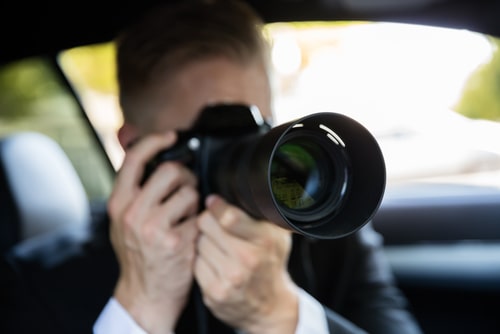In a personal injury case, the injured party seeks compensation from the at-fault party’s insurance company for damages such as medical expenses, lost wages, and pain and suffering. However, insurance companies have a vested interest in minimizing their financial liability and may employ surveillance tactics to challenge the validity of the claim or reduce the amount of compensation awarded.
This surveillance typically involves the use of various investigative techniques, including video of the injured party’s activities, behavior, and physical condition, in order to try to prove a fraudulent or exaggerated claim. The following is a brief overview of how this process works. If you have been injured in an accident caused by another party, make sure to consult with a Virginia Beach personal injury lawyer right away.
What Does Insurance Surveillance Involve?
Insurance surveillance typically begins shortly after the claim is filed, although it may also be initiated at any point during the claims process. Surveillance operatives may conduct discreet observations of the injured party’s activities in various settings, including their home, workplace, or public places. They may also use hidden cameras or drones to capture video footage of their movements and interactions.
Suspicious cars/vans with tinted windows parked outside of your house or at your work may signal such activities. The investigator may also follow you into public places (restaurants, shops, malls) to monitor your activities.
One of the primary objectives of this surveillance is to assess the claimant’s physical capabilities and limitations. This may involve documenting their mobility, range of motion, and ability to perform daily tasks such as walking, lifting, or bending.
Surveillance often focuses on capturing evidence of the claimant engaging in activities that are inconsistent with their reported injuries or restrictions. For example, if they allege to have suffered a debilitating back injury that prevents them from lifting heavy objects, but surveillance footage shows them engaging in strenuous physical activities such as moving furniture or playing sports, it could cast doubt on the veracity of their claims.
If the surveillance footage contradicts your assertions regarding the severity of your injuries or level of impairment, it can significantly undermine the credibility of your claim. This is why it is always important to be forthcoming about your limitations with your personal injury attorney.
Limits of Surveillance
Although insurance surveillance is allowed under Virginia law, there are some limits that investigators are required to adhere to. Investigators are not permitted to trespass on private property, engage in harassment, or invade the claimant’s privacy rights. Any evidence obtained through surveillance must be relevant, authentic, and admissible in court to be considered credible and persuasive.
If the surveillance activities are deemed to be conducted in bad faith or in violation of the claimant’s rights, it could lead to legal repercussions.
Contact Our Personal Injury Law Firm Today
If you or a loved one has been injured in an accident caused by another party, contact one of our Virginia Beach personal injury lawyers. The legal team at Shapiro, Washburn & Sharp is dedicated to helping injured clients obtain the compensation they deserve for their medical bills, lost income, and other losses their injuries have caused. Our legal team will work diligently to make sure you get the financial justice the law allows, like the $235,000 car accident insurance settlement we obtained for one client who suffered multiple injuries when another driver failed to yield the right of way.
